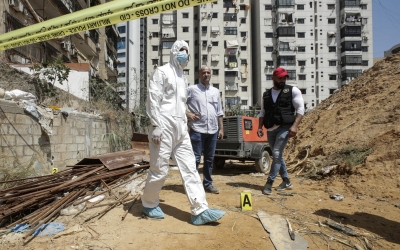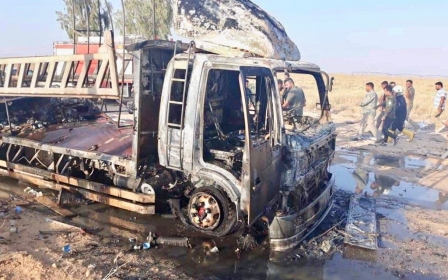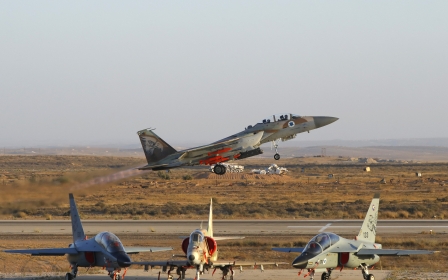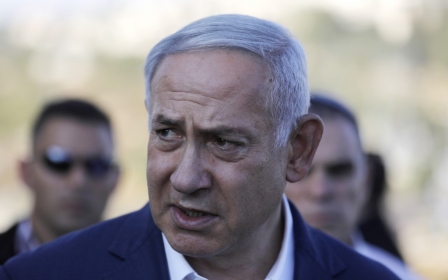Iraqi leaders condemn suspected Israeli attack on Iran-backed paramilitaries
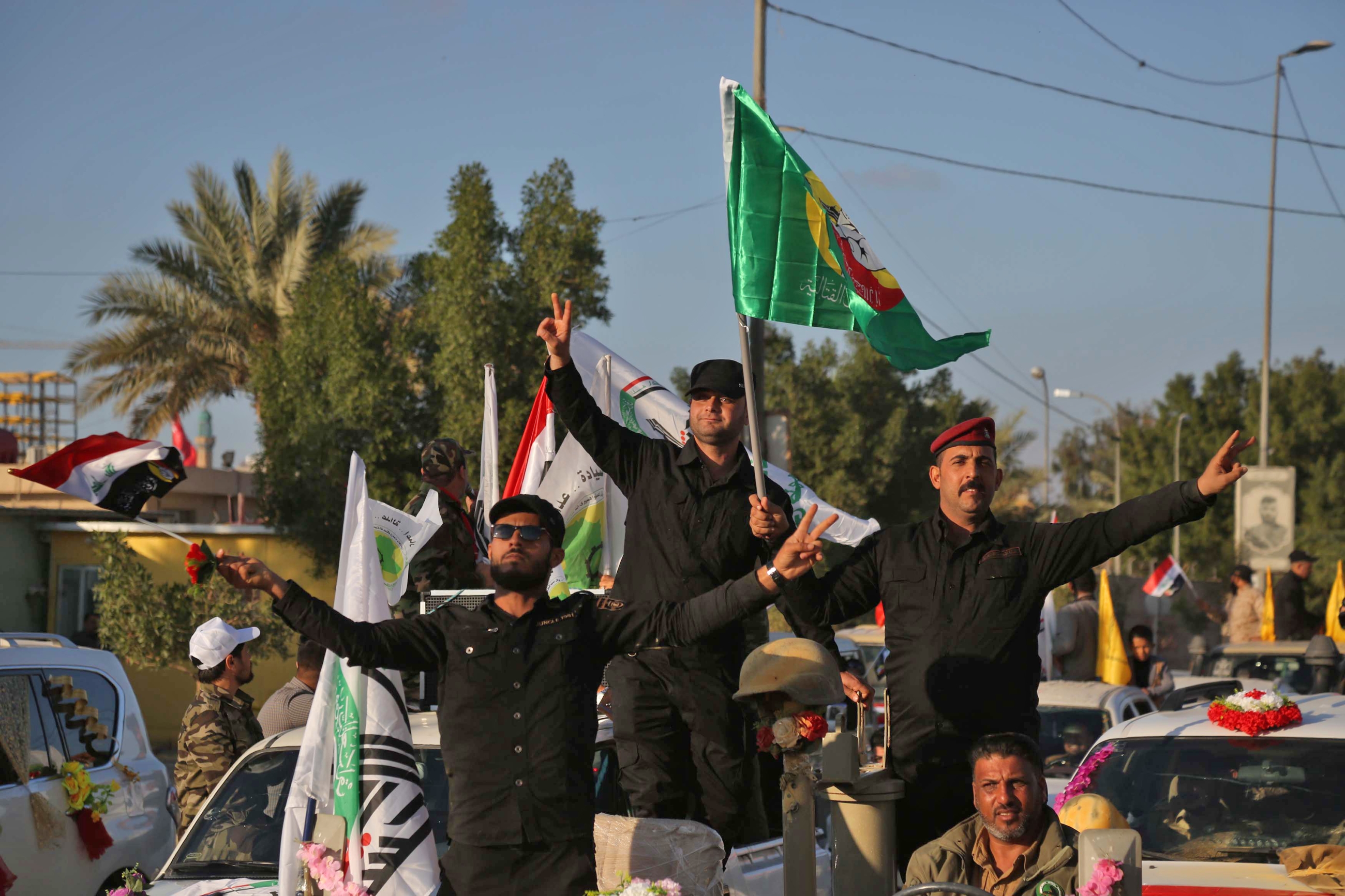
Iraq's top leaders have condemned suspected Israeli air raids on bases used by Iraqi paramilitary groups as acts of "blatant aggression" that violate the country's sovereignty.
Iraqi President Barham Salih said on Monday that the country's sovereignty and security are a "red line" that his government will protect.
"Iraq, through the government and all the active channels and international and regional organisations, will take all the necessary measures to deter the aggressors and defend Iraq and its security and sovereignty over its territories," said Salih, as reported by Iraq's official news agency.
His comments come a day after Iraq's mostly Shia Popular Mobilisation Forces (PMF) were targeted by unidentified drones near the Syrian border, an attack that the paramilitary forces blamed on Israel.
Salih met with Prime Minister Adel Abdul-Mahdi and Parliament Speaker Mohammed al-Halbousi on Monday to discuss the recent attacks.
The air strikes were the latest in a series of attacks over the past month targeting the PMF, a group that is backed by Iran and is also known as al-Hashd al-Shaabi.
In a statement on Monday, the Pentagon said its forces did not conduct the attack on the convoy or recent attacks on ammunition storage facilities. It did not address whether the United States provided air support.
"We support Iraqi sovereignty and have repeatedly spoken out against any potential actions by external actors inciting violence in Iraq," it said.
The Pentagon said it was cooperating with an Iraqi investigation of the attacks.
Israeli attacks
Israeli leaders have not yet commented on Sunday's attacks.
But last week, Israel's Prime Minister Benjamin Netanyahu said the Israeli army is operating in "many areas" when asked if his country's forces are willing to hit Iran-linked groups in Iraq.
"I gave the security forces a free hand and instructed them to do anything necessary to thwart Iran's plans," Netanyahu said.
On Monday, Salih said targeting the PMF, which played a major role in defeating the Islamic State (IS) group in Iraq, could derail plans to eradicate terrorism in the country.
Baghdad has been trying to integrate the paramilitary fighters into the state's security forces, granting them the same rights and pay as members of the military.
Still, the PMF is widely viewed as a proxy for Iran, as its forces have fought alongside Tehran's allies and pro-government forces in Syria.
On Sunday, the group berated Israel for the drone attack, which killed two of its fighters.
"As part of the string of Zionist attacks on Iraq, the evil Israeli crows have returned to target the Hashd al-Shaabi, this time with two drones inside Iraqi territory," the group said in a statement.
Sunday's attack came after an attempted Israeli operation against Hezbollah in Beirut, where two drones crashed within hours of each other.
Hezbollah leader Hassan Nasrallah warned that further Israeli violations "will not pass".
"The time when Israeli aircraft come and bombard parts of Lebanon is over," Nasrallah said on Sunday.
Early on Monday, Israeli air strikes targeted a base used by the Popular Front for the Liberation of Palestine - General Command (PFLP-GC), a Palestinian faction, near the Syrian border, further inflaming tensions.
Lebanese President Michel Aoun called the attempted Israeli drone attack in Beirut a "declaration of war".
Later in the day, US Vice President Mike Pence said he spoke to Netanyahu on Monday morning and that Washington "fully supports Israel's right to defend itself from imminent threats".
Pence did not specify what threats he was referring to.
"Under President @realDonaldTrump, America will always stand with Israel!" he tweeted.
Middle East Eye propose une couverture et une analyse indépendantes et incomparables du Moyen-Orient, de l’Afrique du Nord et d’autres régions du monde. Pour en savoir plus sur la reprise de ce contenu et les frais qui s’appliquent, veuillez remplir ce formulaire [en anglais]. Pour en savoir plus sur MEE, cliquez ici [en anglais].


